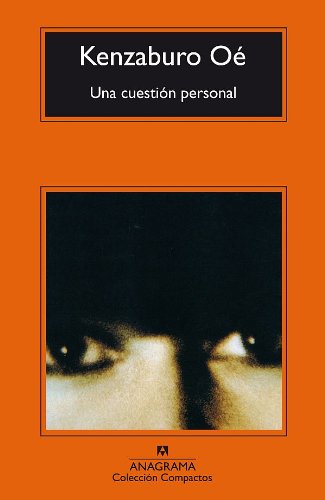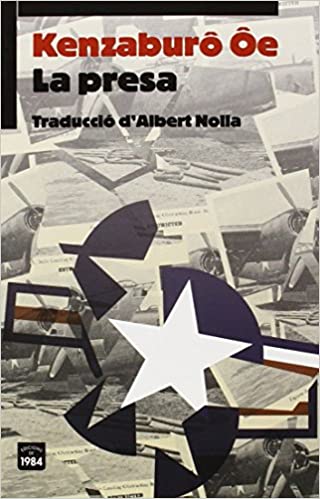Two are the Japanese laureates with two Nobel Prize winners in literature. The first was kawabata and the second, who I bring now to this blog: Kenzaburo Oe. Awaiting remains Murakami that although it conquers the western literary market with greater intensity, it is always at the gates of the award, flying over the bets to each new year.
The most easily remembered Japanese writer with a surname, Oé, he was a convinced traveler, a person who is intellectually restless enough to understand that the most relevant humanistic and cultural baggage is obtained from the contrast between what is one's own and what belongs to other cultures.
An almost necessary posture for every creator. Ethnocentrism does not lead to anything good, although for this it is not worth traveling but with the intention of soaking up everything that is alien to the known.
The result is that, entering the work of Oé we decipher keys of this learning in the contrast, of the evident clash that the mixture of cultures supposes, imperative and necessary in a world already accessible to all. And perhaps in this latent conflict the individual's sense of loneliness that also permeates Oé's narrative is detected to a greater extent.
Stripped of any sense of belonging, faced with more cultural options from the initial closure, the self can gradually decompose in that escalation of alienation multiplied by its own dislocation in its own cultural impositions, shown in the open thanks to the miscegenation of ideas.
But the truth is that for Oé, with more reason than a saint, that feeling of loneliness is necessary to get out of the uniform crisis of his own ethnic group. And so, he builds his essays and novels, around thoughts or characters that address the existential from the human to the humanity immersed in its melting pot of cultures ...
Top 3 recommended novels by Kenzaburo Oé
Pluck the seeds, shoot the children
Under this title of imperative barbarism we find a moving novel centered on the human being crossing that border between childhood and maturity.
The narrator of the novel is a young man who leads a group of teenagers and children from the war. A group of kids released from the reformatory due to the warlike circumstances and concentrated in a town that ends up being abandoned by its inhabitants due to an epidemic. The sum of fatalities disposes the kids in front of a destiny to write without the marked lines of the adults.
At times it seems that the lives of the boys find an orderly course, freed from prejudices and schemes corrupted by the society from which they come.
But in this progress between epic, romantic and lyrical of young people facing a new world, any detour ends up becoming an unfortunate decision that will lead to new conflicts of old civilized roots.
A personal matter
If it were not for that mythical aspect of the previous novel, in which some young people try to raise the famous utopia of civilized man, without a doubt I would have chosen this other novel as the best of Oé's production.
In this presentation of the contrast between cultures that I previously indicated as a patent aspect in the author, we meet a professor Bird burdened in the world of a Japan more driven by customs and attitudes, to which he moved in search of an inner self that seems to be slipping under him. any scenario.
The matter worsens when Himiko brings into the world a deficient child who only assures a tie to doom and sacrifice that will lead us to the particular hells of a type convinced of the glory and transcendence for his soul and faced with the shadows of a fate that seems bent on beating and humiliating him.
The decisions appear like black clouds in a plot that leads us with its centripetal force towards restlessness, madness and a megalomaniac point of this prototypical character of the happy man sold by today's society.
La presa
Freed from the greater burden of its older sisters, this smaller and more dense debut by Oé, nevertheless provides an aftertaste of a bitter adventure, at times sinister, about a war plane pilot who fell in the Pacific and rescued by a people Japanese who observes him strangely because of his black skin and who ends up transforming him into a zoo animal that even children mistreat.
In hyperbole we find that awareness-raising intention of racism due to ignorance, of xenophobia made more phobia by repudiating what is different and misunderstanding what has come from outside than by natural reasoning itself.
A novel that already provided that lyrical aspect between the ominous or the strange that always accompanied the author.




4 comments on “The 3 best books by the exotic Kenzaburo Oé”